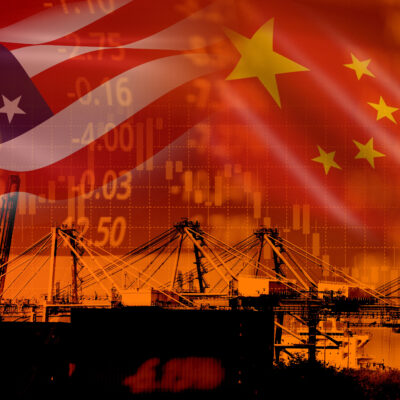
RECOMMENDED READING
The Chinese Communist Party’s efforts to eradicate the Uighur Muslim population in favor of the Han majority are horrifying. Programmatic abortions and sterilizations, slave labor, and “re-education” camps recall atrocities of the past. At the same time, the CCP’s ambitions for Hong Kong outrage westerners committed to liberty and the rule of law. And its record for the treatment of prisoners and religious dissidents is miserable.
As it becomes ever more obvious that the People’s Republic of China is our chief international rival, the temptation grows for America to respond armored in the moral language of human rights. It almost appears a relief to have an enemy to call evil, as we struggle internally once again over the gap between our country’s stated aspirations and the realities of life in our cities. There can be no equivalence between us and them, we think, because we try, at least, to be on the “right side of history.”
But if they appeal first and foremost to the morality of international law and the memory of totalitarianisms, U.S. leadership runs the risk of forgetting a more basic piety. America owes a strategic counter to China’s rise not to Uighurs and Hongkongers, but to the American people.
I worry the opportunity to build a prudent national industrial policy may be lost in a righteous fervor. China appears destined to orient America’s global efforts one way or another. But there is a difference between measuring China with the ruler of human rights and measuring our security with China’s industrial strength, and they suggest different policy responses. The American leadership class broke something when, in the name of liberal internationalism, they effectively paid the PRC to become America’s rival. They should fix what they broke, by strengthening American production and rethinking our role in global supply chains, not by condemning the CCP but maintaining the mindset that allowed it to become a rival.
This is not amoral pragmatism. A focus by American leadership on the welfare of American workers and the strength of American industry is the moral, the just, response to China’s expansion. The love the Samaritan showed the robbed man in Christ’s parable did not excuse the failure of piety by his countrymen who left him to bleed. They stood condemned. Love of neighbor starts at home.
The “China Shock” that followed permanent normal trade relations with the PRC was not a surprise. The decision had critics at the time. Economic “shock therapy” had been performed on the former USSR already, to disastrous effect. Offshoring was a cost our leaders thought it worth paying in the hope that China, in growing wealthy, would grow free, that it would join the liberal world order and become safe. That has proved foolish. Factories are gone to China, Chinese fentanyl is come to America, and CCP agents steal American secrets from the public and private sectors alike. Our corporate giants, become global brands more committed to themselves than this nation whose laws fostered their growth, are beholden to the wishes of Beijing and dismissive of American concerns.
Don’t our leaders owe those they represent the correction of these domestic ills? Though they may feel more powerful and more righteous condemning the CCP for its many cruelties, civic piety gives them a responsibility for the general welfare of their fellow citizens first.
“We can walk and chew bubblegum at the same time,” you think, protect humanity and serve the United States. Can we? I do not condemn the moral impulse to do something, when we see terrible violence and feel that we can stop it. I question our track record of success. Though squandering three decades as global hegemon is almost impressive, wars without end do not inspire confidence. If our governing class can learn from past mistakes, they might focus on their own debt to Americans, before they seek to make the Chinese pay.
Recommended Reading
CHIPS Won’t Help China
American Compass executive director Oren Cass argues that demanding perfect legislation is a convenient excuse for voting no, and a standard by which everyone would always vote no.
Policy Brief: End “Permanent Normal Trade Relations” with China
Reclaiming control of U.S. trade policy
Halting Investment in China
Oren Cass discusses why America must disentangle from China to protect its market from subversion by the CCP.












